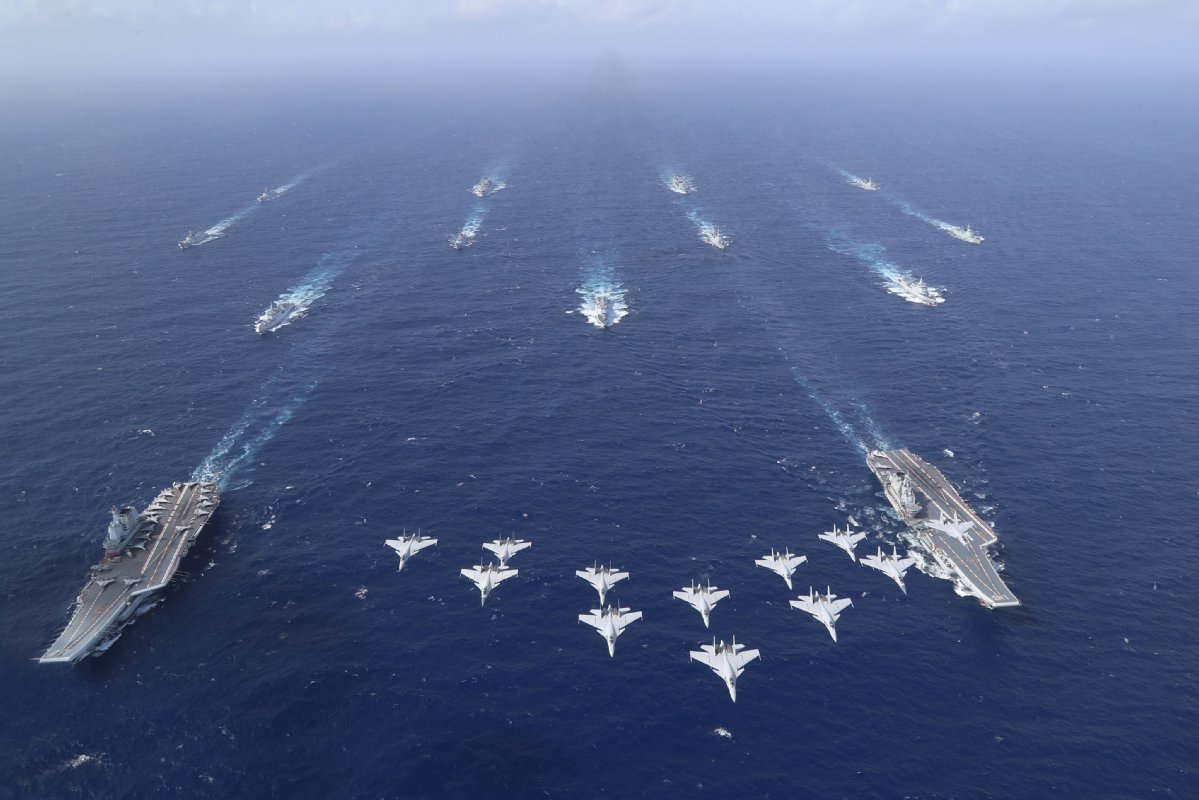
The formations of Chinese aircraft carriers Liaoning and Shandong carry out a dual aircraft carrier formation exercise for the first time in the South China Sea in late October 2024. The exercise was part of the Liaoning aircraft carrier formation's regular real-combat training in the high seas, which concluded recently. [Photo/Xinhua]
The two carrier strike groups of the People's Liberation Army Navy have recently conducted a joint combat exercise in the South China Sea, according to the Navy.
The operation took place in the middle of a long-distance exercise carried out by the CNS Liaoning aircraft carrier and its strike group that sailed across the Yellow, East China and South China seas from September to October, the Navy said in a brief news release.
After the Liaoning group arrived in the South China Sea, it was joined by another carrier strike group led by the CNS Shandong.
It marked the first time that China's two carrier strike groups took part in an exercise together and was intended to hone the joint operation capability of the two groups' personnel, according to the release.
The Liaoning group has returned to its homeport in Qingdao, Shandong province, the Navy noted without disclosing the Shandong group's whereabouts.
In addition to the release, the Navy published several pictures and video clips showing the two groups sailing in a formation.
According to the pictures and clips, 11 other vessels also took part in the joint exercise, including three Type 055 destroyers and two supply ships.
Up in the air, 12 J-15 carrier-borne fighter jets flew over the ships in a triangle formation in what appeared to be a parade moment, the pictures and clips showed.
At a news conference in Beijing on Thursday afternoon, Senior Colonel Zhang Xiaogang, a spokesman for the Ministry of National Defense, said the two-carrier exercise was part of the Navy's annual training plan and aimed at improving the carrier strike groups' systematic combat strength.
Song Zhongping, a military affairs commentator and retired PLA officer, said that the operational prowess of two carrier strike groups combined is much greater than that of two groups operating separately.
"Fighting together will integrate and magnify the power of all of the two groups' assets and can enable the fleet to better organize strikes and handle threats from air and sea," he said, noting the number of combat aircraft of two carrier groups combined exceeds that of the entire military of many nations.
"As the size of China's carrier force keeps growing, the country will deploy its two carriers in a single operation on a regular basis and that will extensively strengthen the Navy's operational capability," the observer said.
Currently, the Navy operates two aircraft carriers — the Liaoning and the Shandong. Both have a standard displacement of around 50,000 metric tons and a conventional propulsion system, and they use a ski jump method for launching fixed-wing aircraft.
The country has built a third aircraft carrier — the CNS Fujian, which displaces more than 80,000 tons of water and uses an electromagnetic launch system, or electromagnetic catapult, to launch fixed-wing aircraft.
Compared with its two predecessors, the Fujian is much bigger and heavier, and has a larger flight deck and smaller superstructure.
The new carrier has become the largest and mightiest warship that any Asian nation has ever built, as well as the world's biggest non-US aircraft carrier. It is now in the sea trial stage and is expected to be commissioned in the near future.
zhaolei@chinadaily.com.cn